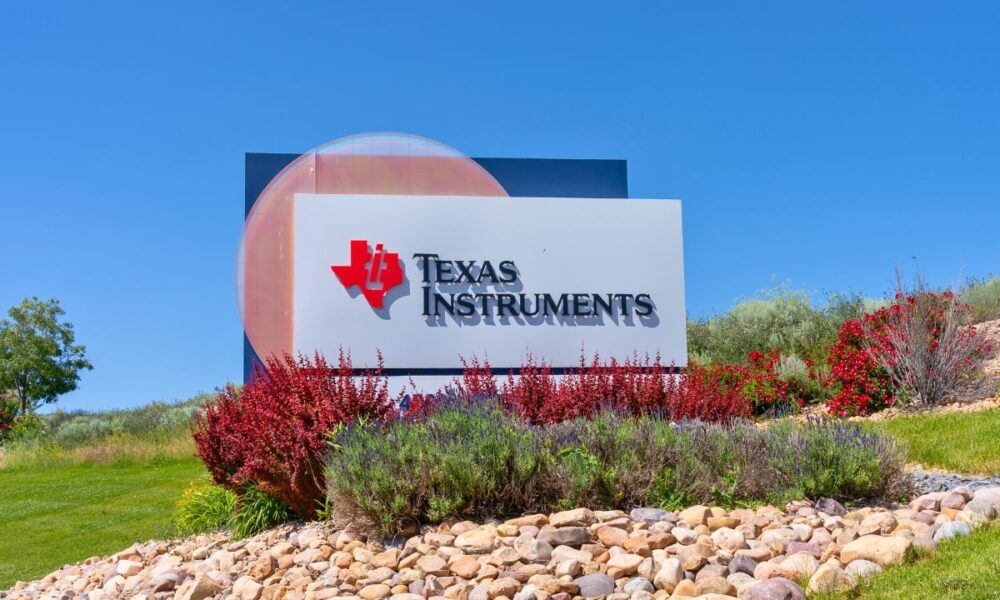Texas Instruments is facing scrutiny for continuing its reliance on H-1B visa workers while simultaneously laying off employees and benefiting from billions in federal subsidies.
The DFW-based semiconductor manufacturer has had 937 H-1B beneficiaries approved since 2020, according to data from U.S. Citizenship and Immigration Services. Seventy-one beneficiaries were approved in the first six months of this year, the latest update reveals. The visas enabled U.S. companies to employ foreign workers in specialty occupations, most commonly in fields such as computer science and engineering.
The approvals came during a period of turmoil in the domestic technology sector.
Texas has seen thousands of tech layoffs in recent years, while youth unemployment nationally reached 10.5% in August, according to the Federal Reserve Bank of St. Louis. A recent report from the Federal Reserve Bank of New York put unemployment among computer engineers at 7.5% and underemployment at 17%. For computer science graduates, the unemployment rate was reportedly 6.1%, with underemployment at 16.5%.
The practice also comes as the company undergoes restructuring.
Three months after Texas Instruments secured up to $1.61 billion in federal CHIPS Act funding to expand its U.S. manufacturing footprint, it laid off workers at its Lehi, Utah, facility, according to the Salt Lake Tribune. The company declined to provide numbers but reportedly told the Tribune it was “well less than 33% of the workforce.”
The contrast between hiring foreign workers and reducing U.S. staff has fueled a broader political debate.
President Donald Trump, who has long criticized the H-1B program as a source of “cheap labor,” has pledged to end the visa lottery system and tie approvals to the highest salaries offered.
Although details of the forthcoming policy change have not yet been published in the Federal Register, Trump has indicated that it will be implemented. Allies such as Vice President JD Vance have also accused companies of replacing American workers with foreign labor, DX reported.
More than half of U.S. citizens say the program creates “unfair competition,” a survey by the workplace app Blind found earlier this month, as reported by DX. The poll revealed that 56% of U.S. citizens believe H-1B visa holders take jobs from Americans, compared to just 27% of green card holders.
Texas Instruments has emphasized its long-term commitment to American manufacturing. In 2018, the company told investors, “Because we manufacture in-house vs. outsourcing… we enjoy a manufacturing cost advantage.”
More recently, the company announced a $60 billion plan to build and expand seven fabrication plants across Texas and Utah. The company projects that the initiative will create more than 60,000 jobs, according to National CIO Review. This investment is supposedly the largest single investment in foundational chip manufacturing in the country’s history, the report stated. It is unclear how many of these jobs will go to American citizens.
Still, Texas Instruments has long maintained overseas ties. It established a research and development center in Bangalore in 1985, the first of its kind for a global technology company in India, according to a company fact sheet. “Almost every product that TI develops has the involvement and contribution of the company’s engineers in India,” the document states.
The federal Department of Labor requires H-1B wages to match or exceed the prevailing rate in each market, and data from the agency’s Office of Foreign Labor Certification show that Texas Instruments’ filings align with these standards. However, much of the company’s recent H-1B activity has occurred in 2025, just as U.S. graduates in computer science face mounting unemployment.
Some of the company’s H-1B hiring has happened for positions in Lehi, the same city as this year’s layoffs.
The tension over jobs and visas reflects a broader national conflict over the role of foreign labor in the U.S. economy.
Some lawmakers argue companies need access to global talent to remain competitive. Others say the reliance on H-1B workers undercuts American wages and opportunities, especially as companies cut staff while receiving federal subsidies.
Texas Instruments has not directly addressed the juxtaposition of layoffs, federal funding, and its H-1B hiring. The company said in March that its adjustments in Utah were meant to “efficiently support our long-term operational plans” and that “Utah continues to be an important part of our manufacturing footprint and company strategy,” per the Salt Lake Tribune.
Texas Instruments did not return a request for comment from The Dallas Express by the time of publication.


